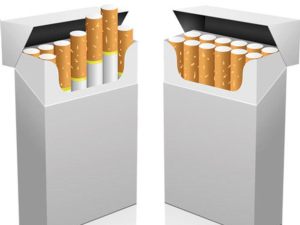A law forcing tobacco companies to wrap their cigarettes in plain packaging could be in force in New Zealand by the end of 2016.
New Zealand Prime Minister John Key has confirmed a bill, which is on pause, would be resumed.
He expected it to become law "sooner as opposed to later".
Meanwhile, the Australian Government has been locked in legal action over its plain packaging laws.

Late last year, US tobacco company Philip Morris failed in a legal challenge against the law – brought about under a bilateral free trade agreement Australia has with Hong Kong.
The New Zealand Government was watching the action, and held up its own bill – currently at the select committee stage – while it awaited the outcome of Australia's court case.
Key told a New Zealand newspaper he was confident he was on firm legal ground.
"A number of other countries have moved on plain packaging and were doing so without court cases being brought against them," he said.
It has also been reported in The Sydney Morning Herald that Europeans are stock-piling cigarettes ahead of the changes to packaging.
The increased demand was noted by Amcor, which has 14 per cent of its business wrapped up in cigarette packaging.
Chief executive Ron Delia said plain packaging presented a good opportunity for the company as it still offered some fairly complex design – but on a greater scale, which could bring down unit costs.
"The packaging that you would be familiar with here in Australia is more or less what some of the European countries are looking at. We would say it's generic but it's really not plain,” Delia told SMH.
"It has a particularly sophisticated set of graphics on it, which are as sophisticated as the average carton in our portfolio.
“So our ability to continue to add value through the graphics is there."
Delia said more countries would follow the plain packaging path, but it would be a slow process.
"We don't see the majority of the countries we operate in heading in that direction any time soon," he said.
"The impact will be a function of whatever the product mix is in a given country and how much value add – if there is any reduction – offset by the cost improvements from running a more standard set of packaging."





